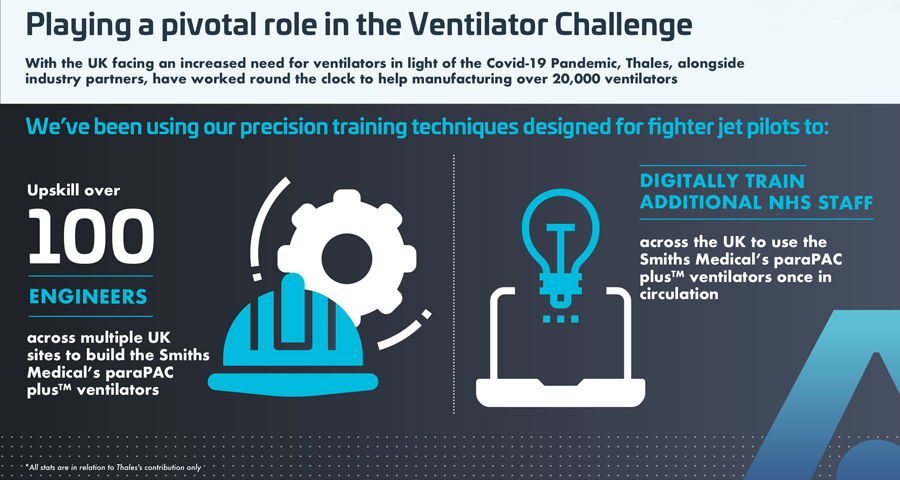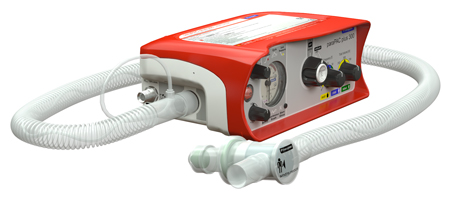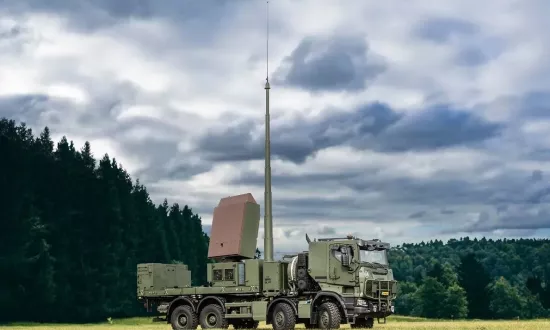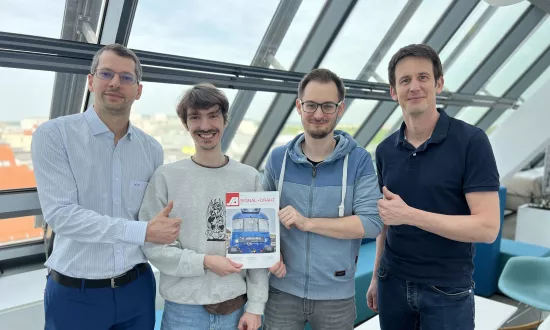COVID-19 Ventilator Challenge
Thales deliver ventilator training to NHS workers and manufacturers
Working with our industry partners
At Thales, we recently announced that we have joined industry partners to support the procurement of medical ventilators for the National Health Service (NHS). As part of the VentilatorChallengeUK consortium, the key part of our mission is to equip the NHS with essential virtual training methods for those who are building and operating ventilators.
In this post, we’ll discuss how we’re supporting the NHS in adapting current physical training methods for operating ventilators in light of social distancing measures for an eLearning platform for new workers on the front line. We’ll also examine what we’re doing to provide specialist training for manufacturers, usually focused on other areas, who are working on the assembly lines in the fight against COVID-19.

Training our doctors and ICU nurses
Since COVID-19 struck, we’ve seen a monumental effort by healthcare professionals including doctors, carers and nurses moving across departments and some returning from retirement, to support ICU units under pressure. This influx of patients has meant that, while many health experts in the field of critical care had experience of ventilators, others that were now being brought on the COVID-19 front line were not trained in the specific operational and technical challenges presented by different ventilator systems they would have to use on a daily basis. From knowing how the ventilators work to the sounds they make and what specific alarms mean, training was seen as a vital part of the puzzle that could lead to lives being saved.
At Thales in the UK, we have been training pilots for extreme circumstances for years and we knew that we could help develop a robust digital learning hub to help NHS staff. Training is normally a serial process, however, we needed to adapt and do things in parallel given the time constraints in order to ensure those operating the ventilators were prepared as soon as possible.

Our team has been in constant contact with Smiths Medical who supply the portable paraPAC plus™ ventilators that can be found in ambulances and used for moving patients within NHS hospitals such as for MRI scans, to produce operator training modules for NHS workers in just three weeks. Usually, when workers first come into contact with a medical device they don’t have experience on, the NHS will use a demo model and put healthcare professionals in a room to play around with it in a very hands on process. Clearly, that is not a viable option at the moment, so we’ve had to be flexible and respond to an unprecedented set of challenges to deliver remote training.
As part of this training, we’re working closely with the clinical education team at Inspiration Healthcare to understand the psychological and operational challenges presented by virtual learning. Approved by the authorities, Thales has now produced a collection of digital resources on the NHS eLearning portal, which is now open worldwide, to get our healthcare heroes up to speed.
Supporting the manufacturers
As well as helping NHS workers on the front line, our team is preparing context training for manufacturers assembling the ventilators. At the start of this project, we assessed the skill level of those on the assembly lines. While all manufacturing operators will know what a torque wrench is, there’s a whole range of other tools and skills needed to assemble the ventilators.
A key example here comes in electrostatic discharge. When dealing with electronic components (and there’s plenty in a ventilator!) those assembling them can unintentionally pass on static electricity, potentially causing damage to the components in the ventilator. In response to feedback from manufacturing operators, Thales decided to offer an additional module for those on assembly lines to learn about electrostatic discharge – training best practice approaches to counteracting this sudden flow of electricity, such as wearing a specialist strap to mitigate any risk to the components.
Laura Shrieves, Head of Systems Engineering at Thales, comments:
“Working remotely with a crack team of twelve experts, as well as our partners at Smiths and Inspiration Healthcare, we’ve worked round the clock to produce these vital eLearning resources in record time. This is a national effort during these testing times, and as the situation evolves, we’re proud to be helping support frontline NHS workers in the best way we can, as well as the engineers risking their health to keep the production lines running.”
Tom Martin, Global Clinical Specialist at Smiths Medical, said:
“We have been very impressed by the quality of training and all of which has been produced in such a short amount of time. It’s vital that those NHS workers that have been brought in to help and who have not previously been trained in critical care, receive the highest quality training in order to save lives. This training is also important for companies who have changed their operations, in order to increase production of our Smiths Medical paraPAC plus ventilators to help them to succeed. In this time of incredible need, its vital companies come together and this collaboration with Thales and the wider consortium has been an incredible and seamless experience from start-to-finish.”
Read more about the Ventilator Challenge and how Thales are mobilised in the fight against COVID-19.


